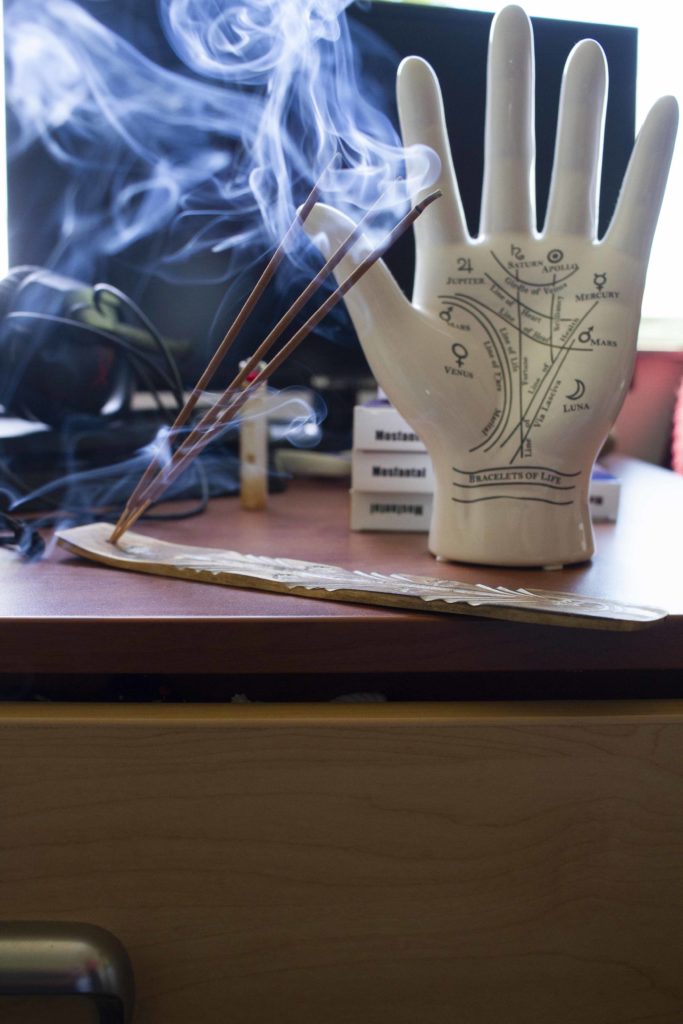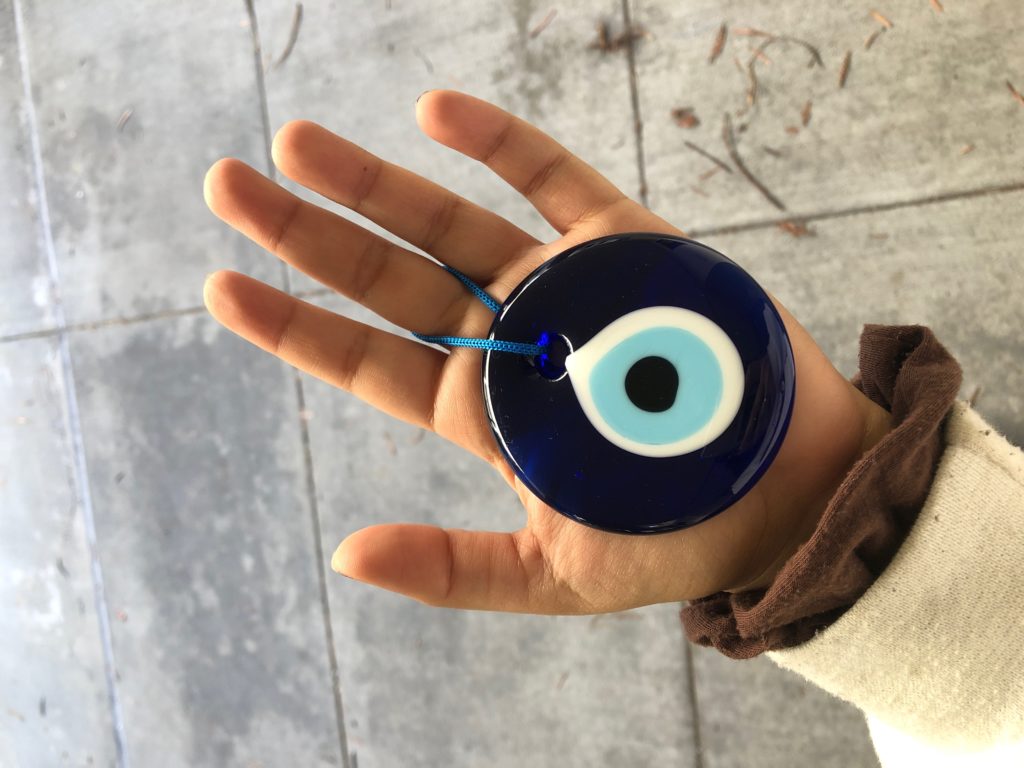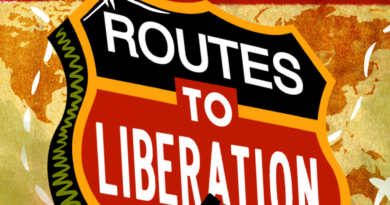Fighting cultural misconceptions: interpreting modern day brujería
HSU student talks heritage, beliefs and the essence of brujeria
To Emely Barrientos, brujeria is not a party trick, it is an ode to her ancestors. Barrientos, 19, is a bruja and a Humboldt State University student.
“The practice of brujeria was based on protection, and that is what we are doing now,” she said.
Brujería vs. Curanderismo
Barrientos said brujeria comes from African, Carribean and Latinx indigenous struggles. This mesh can cause confusion between things like brujeria, curanderismo and even ritual styles.

“They both coexist, they help guide us into the light and give us hope,” Barrientos said. “Curanderas is a form of healing, and brujeria is a form of protection,” she explained.
Professors like Jeffery Burton Russell at the University of California, Santa Barbara has studied the complexity of brujeria in the middle ages. According to an article titled “Witchcraft,” Russell explains that it is hard to define the meanings and practices of witchcraft because they are influenced by many factors.
“Different cultures do not share a coherent pattern of witchcraft beliefs, which often blend other concepts such as magic, sorcery, religion, folklore, theology, technology, and diabolism,”
Ancestry
Barrientos’ mother, aunts and other close women in her life were raised outside of church beliefs.
Her family came from El Salvador, where their ancestors began practicing brujeria because they wanted to see their community in a more open and peaceful space.
More recently they settled in south central Los Angeles and continue to practice brujeria to stay connected to their ancestors.
Barrientos prefers the term curandera because she explained that bruja still carries negative connotations. This coincides with what feminist anthropologists, like Ruth Behar pointed out in her article “Sexual Witchcraft, Colonialism, and Women’s Powers.” In the article, Behar mentions how in most societies women are denied culturally legitimate authority in the public sphere, making whatever power women do have seen as illegitimate.
To keep her beliefs in brujeria alive, Barrientos said that she reminds herself that women bring beauty, healing and positivity to the world.
Rituals & beliefs
Growing up in
They learned to practice rituals, tarot card readings, astrology and numerology. Some rituals she practices are for spiritual protection, cleansing and affirmation, such as:
“Simple rituals like cleansing your body, hands, and environments will remove negative energies,” Barrientos said. To do this she recommends to call on your ancestors, envision yourself being cleansed and wash your body.
- To protect yourself from the envious people and ill-wishers, she suggests wearing a Mal de Ojo bracelet. It’s believed to ward off negative intentions.
- To avoid unwanted visitors, put a broomstick to your door.


Photo by Diego Linares
“If you are having bad luck one week, ask a trusted elder to cleanse your energy with an egg. Only with education and pure belief will the negative energy be removed,” said Barrientos.
A ritual she distinctly recalled is one her mother did to cleanse her of nightmares.
“She would put a cup of water under my bed. After that, before the sun would come up, she would get the cup and throw it outside. And there was one time she showed me that it was bubbling, and you know still water does not do that,” she explained. Today, Barrientos said she continues to practice ritual for herself and her little brother.
For Barrientos, the main part of brujeria is that you must have a strong sense of self.
“Your identity and confidence has to be really grounded into yourself, into the earth, into your ancestors, and into whatever universal power you are trying to receive,” she said. “Read books whose authors’ lineage align with your own ancestors.”
Barrientos emphasizes that education is a big part of brujeria because it is about honoring and respecting those before us in order to receive guidance.
Editor’s note: The views and opinions expressed in this article are those of the source and do not necessarily reflect the official view of this topic.




